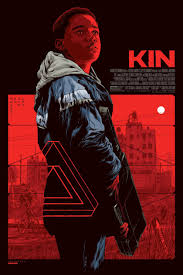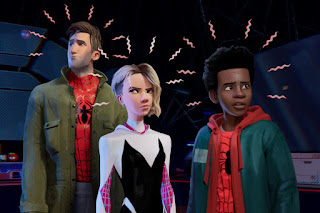Dune
Frank Herbert, 1965
Fortuitously, Villeneuve’s first part of adapting
Frank Herbert’s ‘Dune’ finishes just at the point I had read up to in
the book at that time (halfway). The novel has sat in my “to read” pile since I
was a teenager smitten with science-fiction, and I have no idea why it has
taken a lifetime to get around to reading it. Perhaps I was intimidated by its
reputation as “difficult” and/or “dense”? Well, it is dense and uncompromising
and the world-building is exemplary, the kind I already knew from Jack Vance;
although Vance feels pulpier and Herbert more serious in intent. World building
is the genre’s chief pleasure and super-power. It’s enthralling and its place as
One Of The Best and Highly Influential is obvious and well earned. It is full
to bursting with detail, characters, culture and political intrigue and themes
without losing focus or reader.
Its themes are the grandest: the
intersecting of politics and religion and economics, cultures and war and guilds
and totalitarianisms, of mesiahs and their followers, etc. It is full of
snippets of wisdom dispensed in fake memoirs and political and religions tomes.
It is full of the mechanics of politics and schemes that often feel like the Machievelli’s
‘The Prince’, or Sun Tzu’s ‘The Art of War’. For example: How you
pay for military might? Make prison planets. And peppered with existential
wisdom such as, “How often it is that the angry man rages denial of what his
inner self is telling him.” Or, “the real universe is always one step beyond
logic.” But the observations are full of intelligence rather than the
platitudes that beset religious enlightenments.
‘Dune’
is heavily steeped in Middle Eastern culture – the precious spice = oil, for
example – and has much commentary on colonialism and exploitation of resources.
Yet whilst sympathetic and respectful of the Fremen natives, it’s a royal
outsider that rallies and guides them. The gender politics are slippery too:
women are concubines and witches, but they also seem to hold formidable behind-the-curtain
power and connivance – they are certainly equal matches for the men, even in
combat. The Bene Gesserit, for example, are a formidable sisterhood of female plotting and power committed
to a breeding programme meant to result in the Kwisatz
Haderach, a calculated Chosen One. Indeed, that they are apparently "influenced by the tales of Maria Sabina and the sacred mushroom cults of Mexico" (says Wiki) shows the rich variety of inspiration that Herbert used. ‘Dune’ touches on too many bases, surely, to be accused
of just one. It’s jammed packed full of weighty ideas and observations.

The guiding point is the apparent “Chosen
One” status of Paul Atreides, the fifteen-year-old heir to the House of Atreides,
trained in arcane ways by his mother and given to visions and reactions from others
that he is Muab D’ib, a religious coming. ‘Dune’ certainly wasn’t the first,
but one can see its popularity and influence as a seminal Chosen One narrative,
even if others overlook its questioning intent. Paul himself is initially reluctant
and disbelieving, although events soon bring out seemingly preternatural
abilities. The Chosen One status drives him directly in conflict with his mother:
he resents her for her part in putting him in that position, the Bene Gesseret breeding
programme. By the finale of the novel in which Paul is given the chance to face
down and outwit all his enemies and rivals, he is giddy with his omnipotence,
even if the last melee is a close call highlighting his mortality. Yet this is
tinged with Paul’s cynicism and self-awareness of his status as myth generator
that defines his character. And as the fulcrum to several Chosen One legends,
this self-awareness and cynicism culminates with his alternating whichever he needs
to best his rivals (Paul Atreides, Muad’Dib, Kwisatz Haderach). Herbert may
have been influenced by Arthurian mythology, but ‘Dune’ is not
fascinated with Romantic Heroism of infallible protagonists. For Herbert, "Dune was
aimed at this whole idea of the infallible leader because my view of history
says that mistakes made by a leader (or made in a leader's name) are amplified
by the numbers who follow without question.”*
It's a grand achievement, the mixture
of hard and soft science-fiction, of convincing ecological and political realities
mixed with futuristic fantasy consistently compelling and intelligent.
Dune
Director - Denis Villeneuve
Writers - Jon Spaihts (screenplay by),
Denis Villeneuve (screenplay by), Eric Roth (screenplay by)
Stars - Timothée Chalamet, Rebecca
Ferguson, Zendaya
And a serious tone, somewhat humourless, is what Villeneuve
brings, which seems to me thoroughly in keeping with the novel. This is in
inevitable comparison with David Lynch’s madcap adaptation. As Mark Kermode
notes, in Lynch’s version there is always a distraction, so you are never bored
even as it is unravelling before your very consideration. It’s somewhat a highly
enjoyable, compelling misfire where the art design and costumes and effects amaze
even as the narrative flounders in seeking purchase. There’s a lot of amusement
to watch it gleefully pummel onwards, almost-but-not so-bad-it’s- good. Arguably,
the few notes of humour tried for in Villeneuve’s ‘Dune’ stick out like
a sore thumb, but they are fleeting moments – and seemingly all deceptively
crammed in the trailer, which is edited like a Marvel Universe teaser (Action! Quips!).
What I found satisfying in Villenueve’s‘Blade
Runner 2049’ was the subversion of the “I’m The Chosen One” trope. That’s
the very foundation of ‘Dune’,** a primary text for this trope indeed, but
I heard a criticism on the Kermode & Mayo film show where someone found all
the foreboding and premonitions tiresome, but that is at the crux of the narrative,
for it’s all about Paul Atreides being foretold as M’uad Dib. But he is
reluctant, not happy at being manipulated into this prophecy; he’s conscientious
and he is angry at his mother’s apparent manipulations at making him The Chosen
One.
One other major criticism is that he is a White Saviour,
but the character of Paul is a little more complex than that, and certainly
Herbert’s vision is more informed. ‘Dune’ is about colonialism, all
the political power play and wrongful disregard of the natives for the sake of
plundering the resources. Khaldoun Khelil*** is enlightening
on the problems of representation in Villenueve’s adaptation, and certainly in
a post-MCU casting world, the casting could/should have been cannier – and surely
Iannucci’s ‘The Life and Times of David Copperfield’ showed up the shallowness
and inadequacies of the mentality of general casting. Indeed, changing the character
Dr Liet Kynes to a black woman (Sharon Duncan-Brewster) hints at greater
diversity already being an option.
In terms of language, it eloquent in the manner we may
associate with canonical classics, but unlike Lynch’s ‘Dune’ it’s not near-impenetrable.
There’s long exposition narration to begin with, the kind that always raises puts
me dubious, but luckily that is just a stumbling block to the story proper. The
secret sign language between Jessica and Paul is a good visual innovation to
convey the Bene Gesserit training that they share, which is all embodied in the
novel’s prose. Similarly, it does away with voiceovers to replicate the novel’s
articulation of thoughts, the kind of voiceover that Lynch used (which I actually
liked, in retrospect).

Any fan of B I G spaceships will be in Heaven here as
they rise from lakes, block out most of the screen as characters disembark, or
even the ‘thopters resembling dragonflies. It’s a film with scope and scale
with plenty of faultless CGI. There is of course wonderful set design, from the
greenery of Caladan (a sequence more expansive than in the novel) to the spacious
chambers, endless sand banks and tunnels of Arrakis. It’s perhaps not as shocking/suprising
as that of Lynch’s version, but it perhaps feels more organic, more realistic. Surely
many will feel like Jonathan Romney:
“Nowhere
near as enjoyable as Villeneuve’s inspired Blade Runner 2049,
Dune is an achievement for sure, but watching it is rather like having huge
marble monoliths dropped on you for two and a half hours, to the resounding
clang of a Hans Zimmer score.”
Timothée Chalamet is, of course, too old to match the fifteen-year-old
Paul Atreides of the book, but there is a precociousness he exudes, a boyish
maturity if you will that suits the character. Rebecca Ferguson as Lady Jessica
is surely more weepy than in the book, but like the rest of the star-studded
cast, she knows how to play this kind of high theatre. Only Zendaya comes
across as an ill-fit, coming too obviously from the American school of feisty female
acting (but this may be unfair in the long-run).
Lynch’s version is more fun, but Villeneuve wants to
get close to the novel’s sombre tone, and this he does. And perhaps those who
enjoy Lynch’s camp appeal may not enjoy Villeneuve’s sincerity and vice versa.
And of course it’s twice the reward if you go for both, and there are plenty of
us. Villeneuve’s style is of a restrained, underplayed tendency, not typical of
the blockbuster style, more an approach associated with indie. So, whereas there
is all the spectacle you could want, the dramatic conveyance will leave many
cold (certainly, many didn’t engage with ‘Blade Runner 2049’s layers,
thinking it lacked for story). And anyway, ‘Dune’ is not a warm story,
but a tale of calculation and survival in an objective and manipulated design. There’s
something battered about these characters rather than adventure action archetypes.
I came away from Villeneuve’s ‘Dune’ with a sensation
that I had been wowed, and like his ‘Blade Runner’, that it would be on
a second watch that I would truly and fully engage. And of course, this is only
half the story.
· *
Herbert, Frank (1985). "Introduction".
Eye. ISBN 0-425-08398-5.
· ** So to speak. One comment came about ‘Dune’
was that it was his response to Isaac Asimov’s ‘Foundation’ series.
· *** I owe thanks for this link to Derek
Anthony Williams https://www.facebook.com/theneofuturist


















